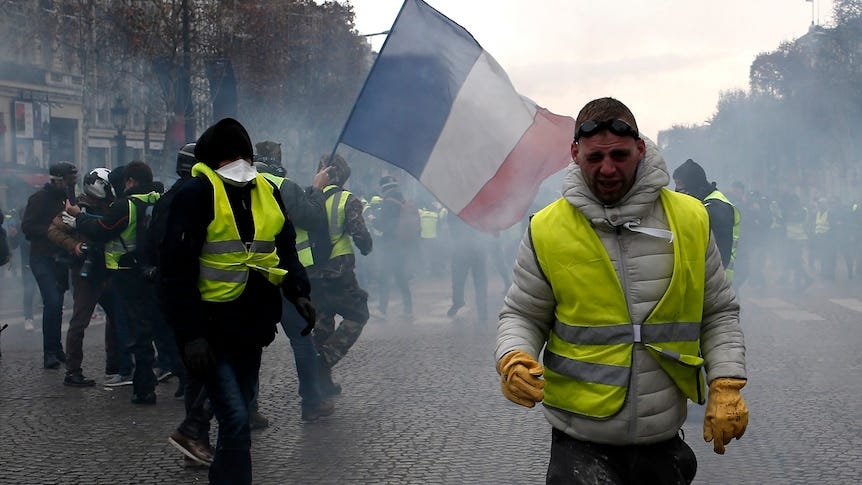Race Over Class: The Recurring Failure of White Working Class Solidarity
The Yellow Vest movement, vilified by political elites and subjected to state aggression, inexplicably aligns with the oppressor when similar violence targets their brethren of color
By Karim Bettache
France, a nation that reveres activism and protests as part of its soul, reveals a disheartening contradiction when it comes to activism originating from Africans. Suddenly, the sanctity of capital and property outweighs the value of an African life. The cherished class solidarity of the "Yellow Vests" movement seems to dissipate when an African child falls victim to injustice. It appears that race takes precedence over class, as the white working class, when confronted with African protesters, finds more affinity with the oppressive state and its police apparatus than with their fellow class brothers and sisters.
The trigger for the recent uprisings in France was the police shooting of Nahel, accompanied by the initial web of lies spun by the authorities. This incident shed light on the entrenched inequalities faced by Africans in the country. High unemployment rates, discrimination in hiring and housing, and a shocking statistic that Africans are 14 times more likely to be arrested by the police paint a bleak picture of their daily struggles. These socioeconomic disparities serve as fuel for the fires of discontent.
Pan-Africanism, an ideology that seeks unity among Africans worldwide, has been unjustly banned in France under the guise of countering "separatism." However, it is clear that this ban primarily serves French imperialist interests in Africa. The French elite fear the solidarity and collective empowerment that Pan-Africanism could bring, as it threatens to disrupt their exploitative relationship with the continent.
In a distressing political shift, the police unions in France have aligned themselves with the far-right, overwhelmingly supporting Marine Le Pen, a candidate known for her extremist views. They have even proposed implementing Israeli-style checkpoints in working-class African neighborhoods, further deepening the divide and perpetuating discriminatory practices.
The path to change lies in organizing marginalized communities globally, from the diaspora to the African continent itself. Given the current conditions, this is the only viable way forward. By uniting across borders and working in solidarity, oppressed communities can reclaim their agency and challenge the oppressive systems that perpetuate their marginalization.
The media coverage in France, unfortunately, perpetuates a skewed narrative that prioritizes property damage over the loss of an African life. Rather than delving into the political rage behind these uprisings, the conversation swiftly shifts to condemnations of the destruction of capital. This deliberate diversion serves to obfuscate the underlying issues at hand.
French society brands anti-racist uprisings as irrational, failing to engage with them on a political level. Such protests and organizing efforts are demonized, while demonstrations led by white Europeans are hailed as sophisticated and worthy of attention. This stark double standard highlights the narrow limits of the universalism that France claims to uphold.
The comfort France exhibits in the face of African deaths stems from its dark history of colonialism, which spans over four centuries. The uprisings we witness today embody Africa's long-standing tradition of resisting arbitrary violence and asserting its agency against oppressive forces.
In this theatrical realm of absurdity, the preservation of capital takes precedence over the sanctity of African lives. Race triumphs over class. However, it is through the unity of Pan-Africanism that the master's house can be set ablaze, paving the way for a more just and equitable future.




Thanks for highlighting the class-traitorship inherent in our western cultures.
We we either see all humans as equally deserving of life and liberty or we fail in allyship.
Class solidarity is vital for transformation of our unjust systems.